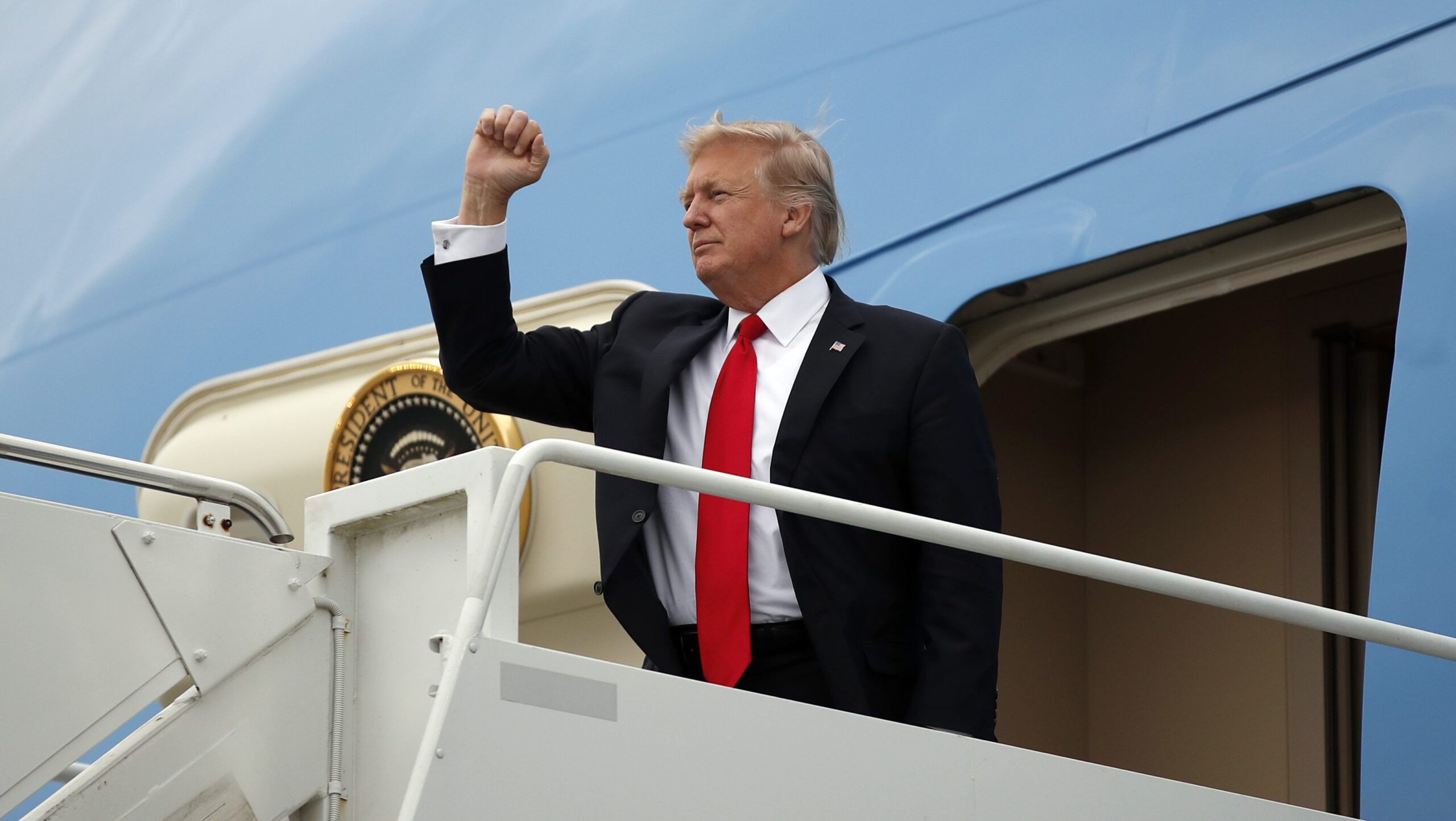
It was May 13, 2025, and Donald Trump had just exited Air Force One. Shortly after, his plane landed without incident at King Khalid International Airport in Riyadh, Saudi Arabia. This visit is just the most recent chapter in Trump’s long-running efforts to broaden his family’s business interests outside the U.S. The Trump Organization is currently developing new luxury properties and golf courses in Saudi Arabia, the UAE, and Qatar. Eric Trump, his son, is at the head of these discussions. One family business is clearly doing well—the Trump family business. Fortunately, this success holds critical lessons as to the role foreign investments can and should play in shaping and supporting U.S. foreign policy initiatives.
The visit comes at a time when Donald Trump’s golf courses are hosting tournaments for the Saudi-owned LIV golf tour, further solidifying ties between Trump’s business interests and Middle Eastern countries. Observers note that Trump’s travels to Qatar, Saudi Arabia, and the UAE indicate a robust willingness from these nations to financially support his ventures, raising eyebrows regarding the ethical considerations involved.
Business Expansion and Foreign Investment
As long as Donald Trump’s family business is allowed to operate, it will keep attracting billions in foreign investment. During his trip, Trump extended invitations for special appearances at his Virginia golf club and White House tours to high-profile investors. These attractive offers appear to be intentionally crafted to entice big money pledges from the deep-pocketed expat billionaire class. Trump may have stolen the idea with his recent announcements to attract foreign investment to the United States. This news has elicited a wide range of reactions from lawmakers.
Senator Chris Murphy expressed concern regarding Trump’s motivations, stating, “The president is in the Middle East, in order to collect tribute from these countries.” His comments highlight legitimate fears that some of Trump’s private business interests will inappropriately shape US foreign relations.
Senator Josh Hawley offered an alternative interpretation, describing Trump’s meetings as in the best interest of America. He remarked, “It’s great that these other countries now want to get close to America again,” implying that such relationships could foster mutual interests. Hawley had the foresight to see the dangers of obvious conflicts of interest. To help prove that point, he pointed to Trump’s specific circumstance as a current businessman and president.
Ethical Considerations and Controversial Gifts
Consider the ethics of Trump’s acceptance of gifts from foreign governments. Trump just recently justified accepting a jet from Qatar this way, calling it “a gimme”—similar to a free putt in golf. This outstretched olive branch has been received with immense skepticism, most notably due to the recent history of at times adversarial foreign relationships orchestrated by his administration.
The Trump administration claims that a separate Pam Bondi memo supports the legality of these gifts. Pam Bondi, former lobbyist for the State of Qatar, now serves as U.S. Attorney General. Yet, this memo has not been released to the public for independent review and analysis.
Fears about Trump’s ties to Middle Eastern strongmen are already mounting. These concerns are heightened by past occurrences, like the 2018 U.S. intelligence report that connected Saudi Crown Prince Mohammed bin Salman to the killing of Washington Post columnist Jamal Khashoggi. Critics warn that these extensive financial relationships would undermine U.S. diplomatic efforts to counter Saudi Arabia on sensitive issues.
Financial Speculation and Future Implications
Trump’s family business might be sojourning in—if not foreign—then at least Scandinavian waters. Potential conflicts of interest and ethical implications have experts up in arms. Eswar Prasad, an economist at Cornell University, highlighted the dangers of Trump’s involvement with cryptocurrency initiatives, saying, “You have a government official… essentially creating and promoting a rampant vehicle for financial speculation and then using his office to promote it and directly profit from it.”
The blending of Trump’s business interests with international diplomacy has concerned lawmakers in a widespread manner. Others caution that such entanglements could diminish U.S. interests abroad. Still others worry that they might lead to putting private interests ahead of national security.
Despite criticisms, Trump’s supporters defend his actions. Karoline Leavitt stated, “It’s frankly ridiculous that anyone in this room would even suggest that President Trump is doing anything for his own benefit.” Supporters claim that Trump’s wild card relationships with these key nations will somehow result in the best possible scenario for America.
Author’s Opinion
Trump’s international business dealings, particularly with Middle Eastern countries, highlight the ethical and security concerns that arise when personal business interests intersect with public office. While Trump’s supporters view these ventures as beneficial for the U.S., the lack of transparency surrounding financial transactions and gifts from foreign governments presents potential conflicts of interest. These entanglements may inadvertently compromise U.S. diplomatic efforts and national security.
Featured image credit: Artyn via GoodFon
For more stories like it, click the +Follow button at the top of this page to follow us.
